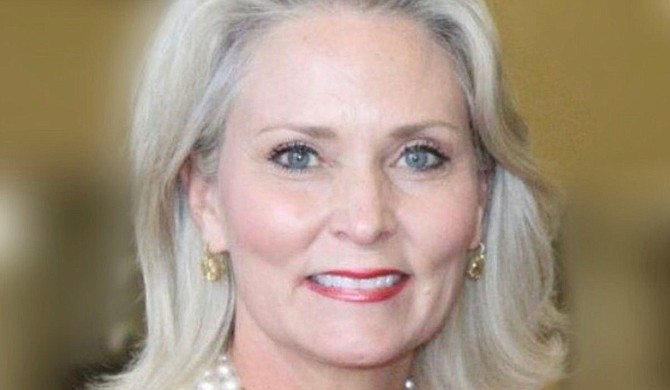Rep. Jill Ford (pictured), Madison County Sheriff Randy Tucker and Ed Langton of the Mississippi Board of Health are against medical marijuana and said Initiative 65, which earned its place on the ballot by a citizen petition, is dangerous, allows “pot shops” to pop up in the state near schools and churches and increases access for people who will abuse the drug. Photo courtesy Mississippi House of Representatives
RIDGELAND, Miss. (AP) — A Republican state representative, a sheriff and a Mississippi Board of Health official on Monday urged those who support some form of medical marijuana in Mississippi to vote for the more restrictive of the two proposals that will appear on the ballot in November.
Rep. Jill Ford, Madison County Sheriff Randy Tucker and Ed Langton of the Mississippi Board of Health are against medical marijuana and said Initiative 65, which earned its place on the ballot by a citizen petition, is dangerous, allows “pot shops” to pop up in the state near schools and churches and increases access for people who will abuse the drug.
“Law enforcement is overburdened already. I can promise you, we are pushed to the limit with the manpower, resources and the backing of the law as it is. We are fixed to open pandora's box," Tucker said at a press briefing in the parking lot of the First United Methodist Church in Ridgeland.
The three leaders said Alternative 65A, on the other hand, offers more conservative regulations and legislative oversight over where and how much of the drug will be sold in the state, as well as who will be able to obtain it.
“65A would give people who are in favor of medical marijuana a responsible pathway for accessing it,” said Ford, a Republican from Madison.
More than 220,000 people signed petitions to put Initiative 65 on the November ballot. It would amend the Mississippi Constitution to allow the prescription by a doctor of up to 5 ounces (142 grams) of marijuana per month for people who suffer from more than 20 medical conditions. The Mississippi Department of Health would issue a medical marijuana identification card that would allow patients to obtain medical marijuana from a licensed treatment center. Marijuana sales would be taxed at the current state sales tax rate of 7%.
Members of the Mississippi Legislature authored the proposal for Alternative 65A in March. It will allow local zoning regulations that would prevent pot shops from springing up on main streets. The alternative would restrict prescribing marijuana to people with terminal illnesses, although people who are ill but not dying could use oils or other forms of the drug.
Alternative 65A leaves tax rates, possession limits, and certain other details to be set by the legislature.
Jamie Grantham of Mississippians for Compassionate Care, the organization pushing for Initiative 65, said the creation of Alternative 65A was not as well-intentioned as legislators made it out to be. In Grantham's opinion, it was an "attempt to confuse voters and deny them a fair up or down vote.”
“The language of Alternative 65A is inadequate and fails to include basic components necessary to establish a medical marijuana program that will help patients – it does not specify any framework for a functioning medical marijuana program, a timeline for implementation, a specific list of qualifying medical conditions, nor does it even provide constitutional protections for patients, caregivers, or doctors,” Grantham said Monday.
The Mississippi Legislature has blocked every proposed attempt – more than 20 bills – to pass medical marijuana legislatively, according to Grantham.
Ford, Tucker and Langton were clear about the fact that none of them support medical marijuana and would not be voting for either resolution.
Tucker said there is no “medical marijuana” in his eyes. He said marijuana is considered a Schedule 1 narcotic in the state because it is frequently abused.
“I’ve been doing this for 30 years and protecting this very community for that number of years, and I have yet to see anybody put one piece of evidence scientifically or medically in my face that says it is a medically approved drug,” he said.
Langton said there hasn't been enough research at this point to prove that using the drug does not have more damaging health impacts than positive ones, especially for young people.
“To call it medical marijuana, medical ice cream, whatever you put the word medical before, it doesn’t necessarily make it medical unless it is truly a medical product," he said.
However, they said they respect that there are people who do support it in some cases, and want to encourage people to vote on what they see as the safest medical marijuana measure.
Further, Langton said a constitutional amendment is not the way to approach this issue, because it gives the Legislature less oversight.
Copyright Associated Press. All rights reserved. This material may not be published, broadcast, rewritten, or redistributed.



Comments
Use the comment form below to begin a discussion about this content.